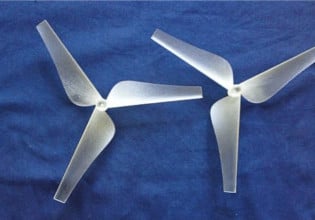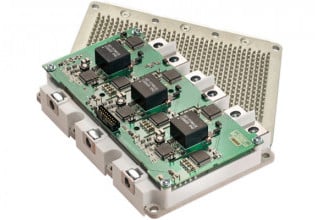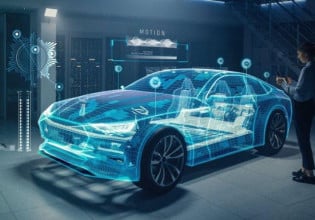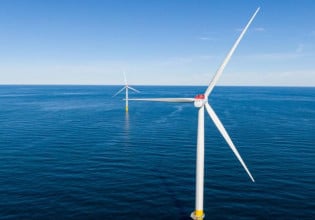Siemens, MAHLE Team Up on Wireless EV Charging Development
Siemens and MAHLE are partnering to develop wireless inductive charging systems, an emerging alternative to standard plug-in chargers.
Siemens and MAHLE have signed a letter of intent to partner in developing wireless inductive charging systems for electric vehicles. The German companies will run interoperability testing to develop “a complete inductive charging system” designed to wirelessly transfer electricity from an on-ground transmitter to a receiver installed under an EV.

Image used courtesy of MAHLE
As a cable-free alternative to industry-standard plug-in chargers, wireless inductive charging promises comparable efficiency without extra cords or connectors. Inductive charging systems exist outside of EVs in low-power applications, such as wireless charger pads/stations for smartphones and tablets. High-power wireless charging systems designed for EVs, on the other hand, would apply the same concept on a larger scale: pairing a circuit-connected transmitter pad with a receiver pad installed below the vehicle.
Siemens and MAHLE plan to explore interoperability and cross-testing between the secondary charging coil on the vehicle and the charging infrastructure that serves as the primary coil.
Stefan Perras, the head of pre-development and innovation for charging infrastructure at Siemens, said that the transfer efficiency of wireless inductive charging “is comparable to plug-in systems.”
Perras added, “In addition to making life considerably easier for drivers, who no longer have to fiddle with cables and connectors, it is a crucial requirement for the autonomous mobility of tomorrow.”
The companies also said the partnership aims to improve the standardization and pre-standardization of wireless inductive charging systems. Siemens is already a member of several EV charging standardization committees.
Entering a New EV Charging Market
As Germany’s largest industrial and automotive parts manufacturers, respectively, Siemens and MAHLE glean their own advantages from the partnership.
MAHLE recently brought its chargeBIG product to market, an intelligent charging management system designed for parking facilities such as employer car parks, airports and fleet operators. While chargeBIG is a cable-based system, MAHLE is now looking to build a wireless solution. The company received public funding from the German Federal Ministry for Economic Affairs and Climate Action to support its projects to develop a cross-manufacturer inductive charging system and a standardized method for measuring electromagnetic compatibility in inductive charging systems.

A closer look at MAHLE’s chargeBIG units. Image used courtesy of MAHLE
Meanwhile, Siemens already dominates the EV charging infrastructure market, with systems installed at gas stations, electric bus depots and city charging points worldwide. It’s also expanding its consumer-targeted offerings, recently announcing a partnership with ConnectDER to develop plug-in adapters for at-home EV charging.

A look at Plugless Power’s wireless charging system for electric vehicles. Image used courtesy of Plugless Power
Zooming out, the current wireless EV charging market is nascent, with many projects still in the pilot testing stage.
A few companies dominate the industry, such as Texas-based Plugless Power (offering wireless charging systems supporting Tesla Model S, Nissan Leaf and BMW i3 models), Massachusetts-based WiTricity (whose partners include Hyundai, General Motors and Nissan) and Pennsylvania’s Momentum Dynamics (which recently unveiled a wireless transfer system capable of charging light-duty EVs at high and low power). Toyota is also developing its own dynamic wireless power transfer system to power EVs while driving.
Feature image used courtesy of MAHLE.






